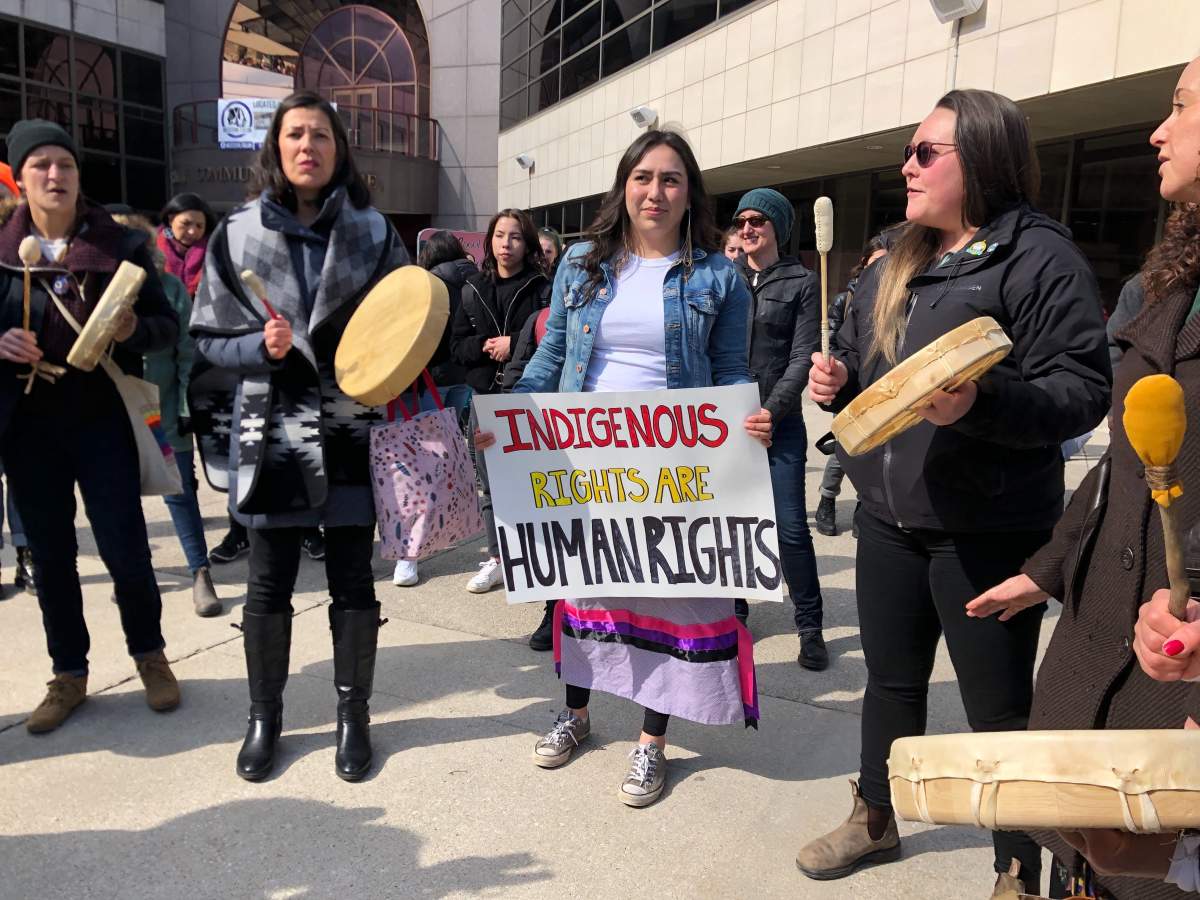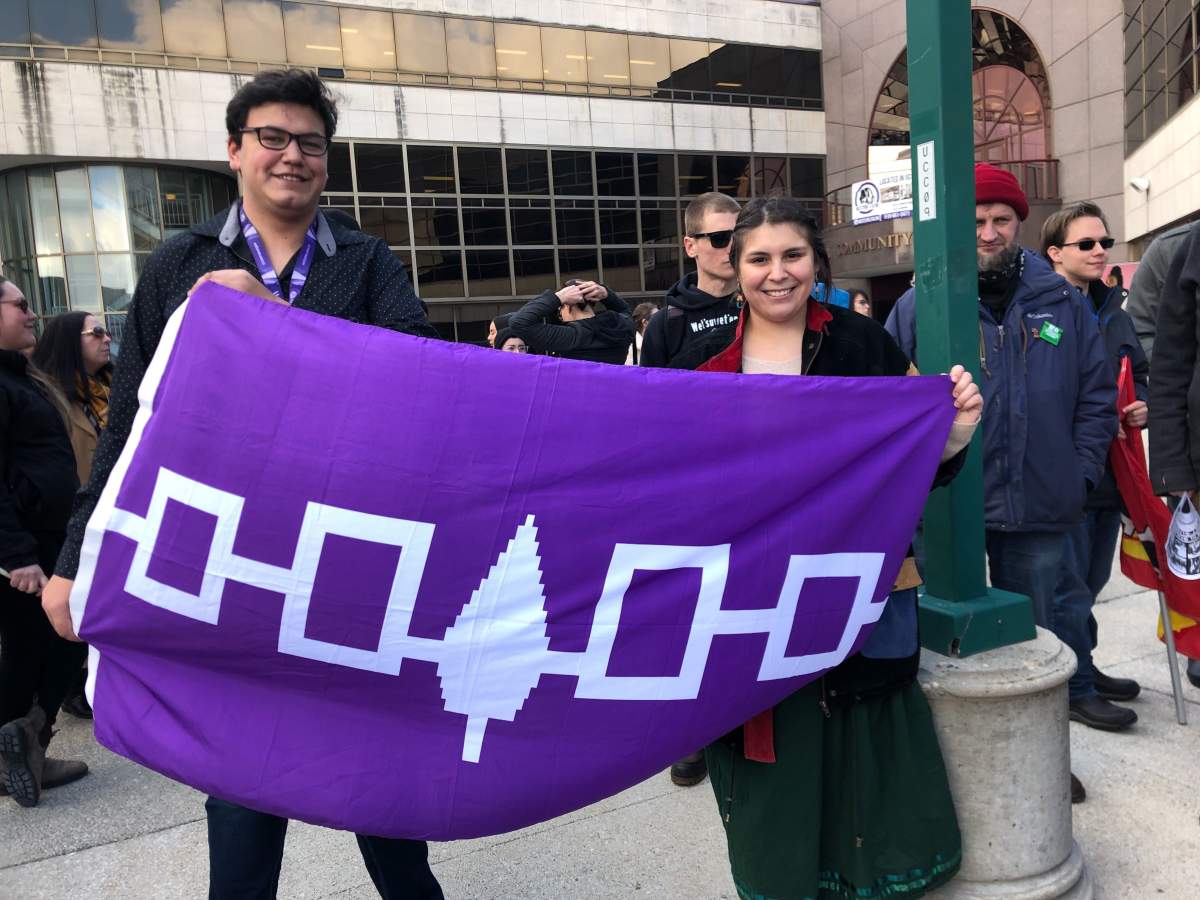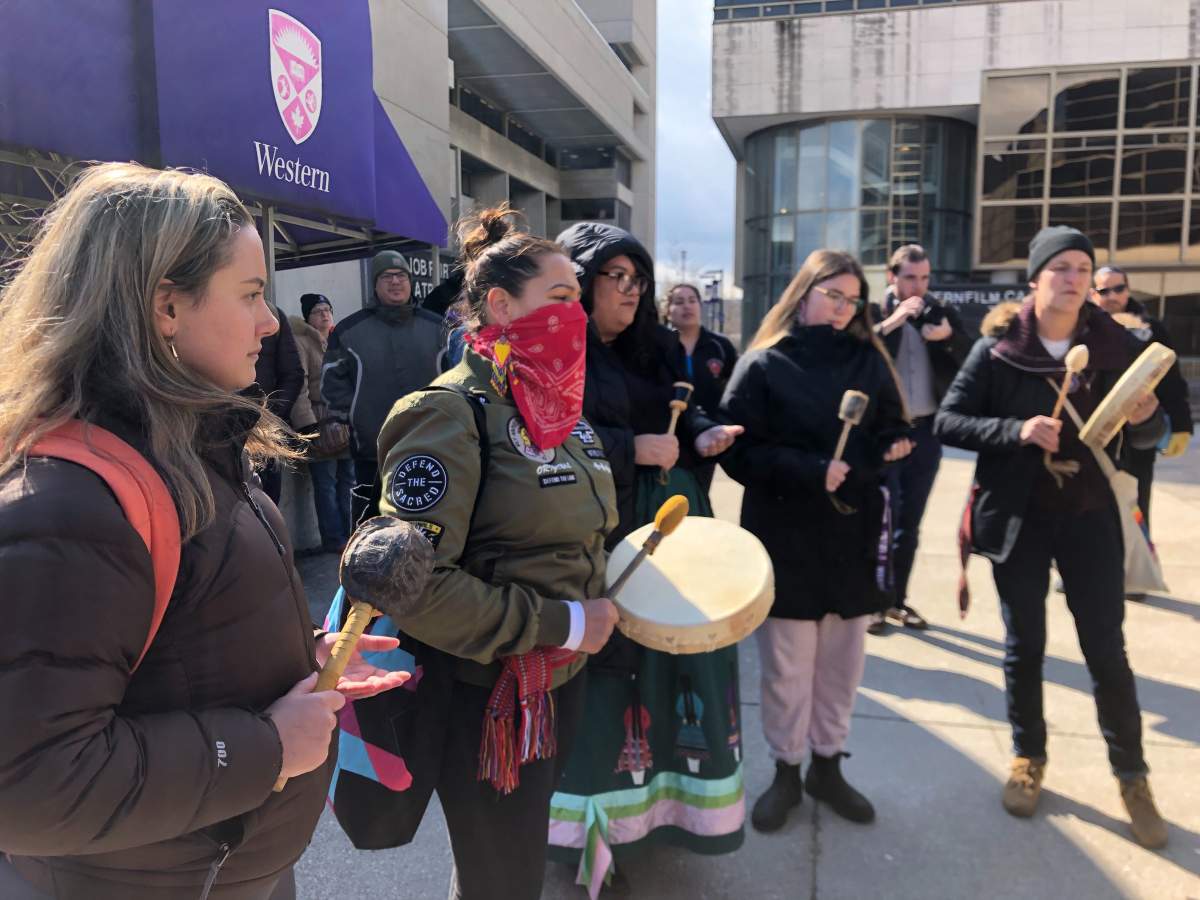Over 100 students, staff and others gathered at Western University on Wednesday afternoon as part of a series of walkouts at educational institutions across Canada in solidarity with the Wet’suwet’en hereditary chiefs and their supporters.

The Wet’suwet’en hereditary chiefs and their supporters are trying to stop construction of the Coastal GasLink LNG pipeline through their traditional territory in British Columbia.
The federal and British Columbia governments reached a proposed agreement on land rights and title with the hereditary chiefs over the weekend and the hereditary chiefs are currently consulting with members.
Organizers say the purpose of the Western University walkout is to demand that the RCMP and Coastal GasLink fully withdraw from Wet’suwet’en territory. Co-organizer Riley Kennedy said continued acts of solidarity are important to show support and keep up pressure on the government.
“I think it’s super important to show that Indigenous people are united across Canada and that when the time comes we can and will stand up. And it’s so important to have our allies here as well just to support us,” the double major in Indigenous Studies and Community Development told Global News.

Get breaking National news
“It’s a really big turnout, I have to say. I’m really impressed with it. I think Western has really come together for this. We’ve had so much support from the university, student councils, and different student groups on campus.”
The walkout at Western began at 12:30 p.m. Wednesday on Concrete Beach outside of the University Community Centre (UCC). Speakers addressed the crowd before demonstrators marched through campus and made their way to UC Hill.
Among those taking part in the walkout were third year political science and accounting student, Augustine Mendes; fourth year Ivey Business student, Karishma Porwal; and third year art student studying Italian, Chiara Polillo.
“Indigenous rights have been ignored in Canada for so long. I mean, they’re still governed under the Indian Act. This is another tribute to colonialism and colonization. There’s been so many issues recently about people just being blatantly racist,” said Mendes.
“We needed the school to step up and we needed students to step up and stand in solidarity with Indigenous students. This is the brightest Canada has to offer, we are the future of Canada, and if we’re not out here to help people then why are we even getting educated?”
- Latest alleged Iranian regime official found in Canada wants his identity hidden
- Why Canadian beer cans are ‘almost impossible’ as tariffs near 1-year mark
- Jivani’s trip to Washington has some Conservative MPs scratching their heads
- Canadian Tire ordered to pay nearly $1.3 million for false advertising
“The fact that so many people came out today and they actually walked out of class. It means so much. It means we stand for these people. I think there’s a lot of power in young people’s voices,” said Porwal.
“I don’t think it’s just a First Nations issue, either. It’s a climate change issue, too. The pipeline has been very controversial and I just don’t think it’s being handled well.
“When it comes to consultations, they’re just not being handled in the way that they should with the First Nations people.”
Polillo added that there are further injustices that need to be addressed.
“This is a human rights issue. I think it’s important that voices are heard, educated voices are head — everybody’s voices are heard, really — about this situation in Canada of Indigenous people in Canada continuing to be mistreated by the Canadian government, which has been going on for centuries. They are treated as second-class citizens in this country,” she said.
Similar walkouts were organized at educational institutions across the country.














Comments